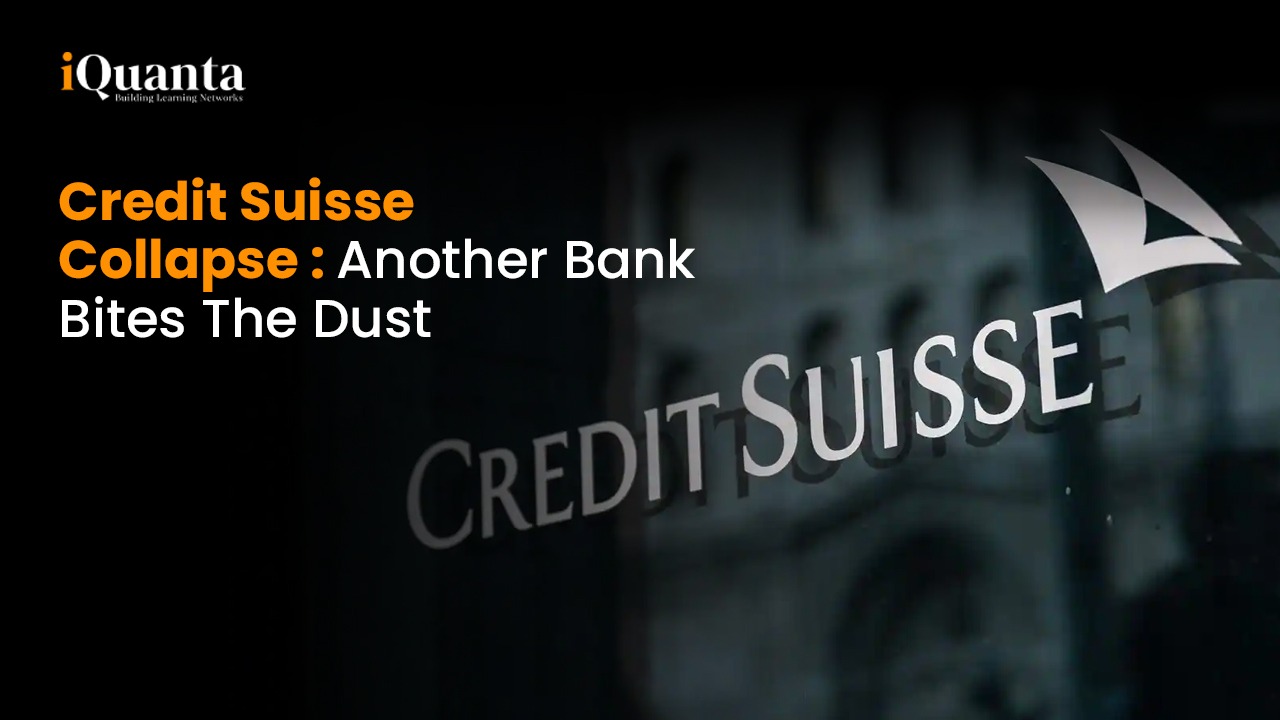The Chaos in Credit Suisse
“You take the blue pill – the story ends, you wake up in your bed and believe whatever you want to believe. You take the red pill – you stay in Wonderland and I show you how deep the rabbit hole goes.”
– Morpheus (The Matrix Trilogy )
The world of Banking has certain glamour to it. Maybe it’s the smart number crunching kids in shiny suits, maybe the Maybachs they drive, maybe because of the caffeine charged, analytical way of viewing life that you want to acquire. Long story short, it’s a sector that impacts the global financial health in a significant way and practically keeps money moving, managing how to deal with debts or how to smartly use the spare money you generate to multiple the penny and dimes into dollars or dirhams.
Long story short, it’s an incredibly secretive world – and that’s all banks offer to us – privacy. As a customer hailing its service, you want your bank to be transparent but tightlipped about your data, statistics or even your personal info. Banks offer that sense of stability and trustworthiness.
Then SVB went bankrupt – a blunder so huge , no amount of secrecy could protect it – its inability to liquidate its fed based assets due to red tape complications made it default its loan it had to pay , the debt it had to pay off. Alarmed, the users immediately took a defensive stance and hence SVB tanked and went broke. The ripple effects were almost instant as NY based Signature Bank declared bankruptcy. The chaos had started in the USA and bank stops suddenly started hitting low – bearish trend was almost imminent as the DJIA showed.
Soon, the ripple crossed the Atlantic and hit Europe. And one of Europe’s finest took the first hit.
CAT 2023 Prep Group. Join Here!
Why did Credit Suisse Collapse
Apparently, Credit Suisse didn’t seem to be at risk given its reputation as a banking powerhouse. October 2022, they raised 2.64 bn USD as quarterly profit – a figure that earnt them the position of 17th largest asset based banking service provider in the planet. The graphs were steady and suddenly they weren’t anymore.
Yesterday, their share price hit the record low of about 1.40$/share.
CAPEx of CS had always been a pain for its shareholders – especially those who want to be more aggressive with their spending. When the financial crisis hit , this timidity was perceived as fear of going bankrupt and alarmed – the shareholders started selling stocks at the price of peanuts – and bled until it shrank to 1/10th of the net worth that it had.
Ripple Effects
Stocks in many other European Banks plunged on Wednesday as traders took fright. However, it is important to remember that share prices reflect investor sentiment rather than the real strength of balance sheets.
Market movements can cause customers to panic and pull cash, creating a run on deposits that is risky for smaller banks that rely more heavily on client cash. However, larger banks such as Credit Suisse are meant to be in a much stronger position, in part due to government rules and regulators’ annual stress testing brought in after the financial crisis.
After the chaos of 2008, regulators around the world introduced tighter restrictions – particularly for banks deemed to be important to the global financial system. Most central banks and national regulators have introduced annual stress testing to check whether banks can withstand severe economic shocks and market turmoil, while still supporting their customers.
In the worst case scenario, systemically important banks are meant to have enough capital and so-called “living wills in place, to ensure they can fail in a relatively orderly way. However, these living wills have yet to be tested by a real-life banking failure.
CAT 2023 Prep Group. Join Here!
How far do Credit Suisse’s problems go?
The bank is in the process of a major restructuring plan, meant to stem major losses, which ballooned to 7.3bn Swiss francs (£6.6bn) in 2022, and revive operations hampered by multiple scandals over the past decade involving alleged misconduct, sanctions busting, money laundering and tax evasion.
In the past three years alone, Credit Suisse has been caught in corporate espionage after hiring professional spies to track outgoing executives; admitted to defrauding investors as part of the Mozambique Tuna Bond, resulting in a fine worth more than £350m; and been embroiled in the collapse of the lender Greensill Capital and the US hedge fund Archegos Capital in 2021.
It also came under fire after the release of the Suisse secrets investigation by global reporting outlets including the Guardian in 2022, which showed it had served clients involved in torture, drug trafficking, money laundering, corruption and other serious crimes over decades.
That same year, Swiss prosecutors found the bank guilty of helping to launder money on behalf of the Bulgarian mafia, although the bank has denied wrongdoing and intend to appeal against the ruling.
But problems have not yet gone away. Earlier this week, the lender admitted there had been “material weaknesses” in its internal controls linked to financial reporting, but assured bosses were working on a plan to “strengthening the risk and control frameworks”.
Conclusion
One thing is for sure, that it has been a big and eventful week in both local and global markets, be it the Adani Insider Trading Probe Findings or the rattling of the banking and finance sector – so the future of a bullish market seems absurd, at least not immediately.
iQuanta guides you in your CAT preparation from the very basics. For high content relevancy and 24*7 doubt solving, enroll for iQuanta’s CAT 2023 Course. Click on the link below to check out the details.



